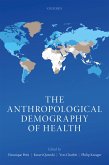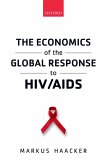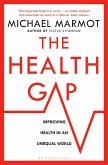The anthropological demography of health, as a field of interdisciplinary population research, has grown from the 1990s, extending to a remarkable range of key human and policy issues, including: genetic disorders; nutrition; mental health; infant, child, and maternal morbidity; malaria; HIV/AIDS; disability and chronic diseases; new reproductive technologies; and population ageing. By observing group formation and change over time, tracking people's networks, and observing variance between what people say and do, anthropological demography goes beyond the characteristically top-down formal methodologies of most mainstream socio-economic demography and population health. This path-breaking volume charts and integrates the growing body of research that combines ethnography with quantitative models and methods in the field of population health. It offers a clear agenda based on important conceptual and methodological advances, and often working in close collaboration with medical and historical research. Approaches to population that are grounded in sustained ethnographic and historical research provide more than substantive knowledge of how cultural and social formations interact with health. They enable understanding of how local institutions and experience of vital events come to be translated into the demographic and health measures on which survey and clinical programmes rely. This, in turn, makes possible critical evaluation of the empirical adequacy of such translation, reflection on what happens when these models and measures become standardised evaluations of health statuses, and what this implies for governance. The combination of anthropological, demographic, historical, and biological research has gone beyond the initial demographic prioritisation of fertility regulation, to take on an expanded range of key health policy issues, and locate them in the context of the inequalities that so frequently give rise to major health differentials. The Anthropological Demography of Health offers a clear agenda for the application and extension of combined anthropological and demographic thinking in population health, and will provide a point of reference for the field.
Dieser Download kann aus rechtlichen Gründen nur mit Rechnungsadresse in A, B, BG, CY, CZ, D, DK, EW, E, FIN, F, GR, HR, H, IRL, I, LT, L, LR, M, NL, PL, P, R, S, SLO, SK ausgeliefert werden.









